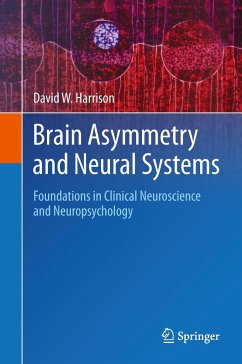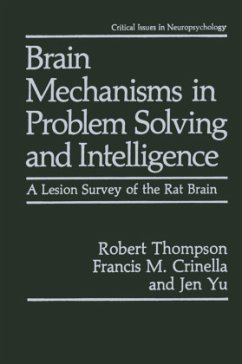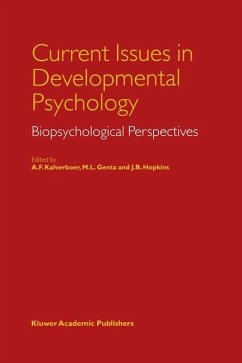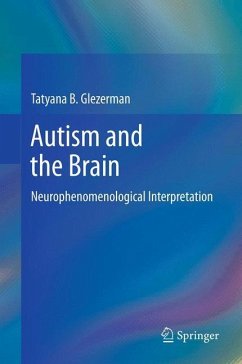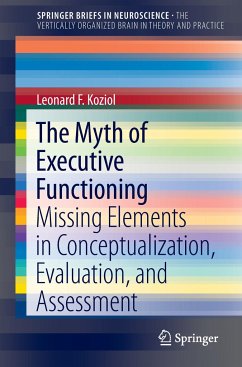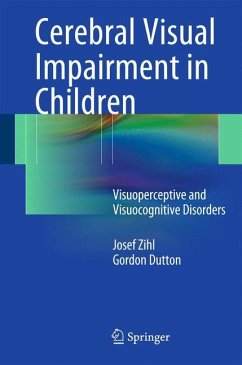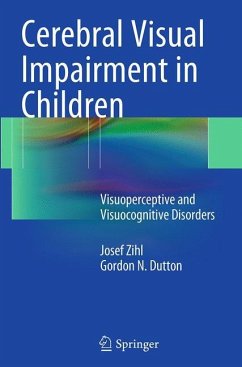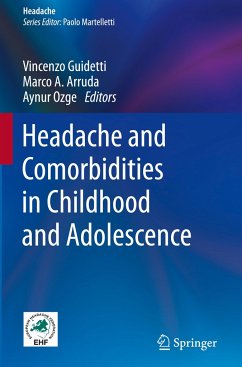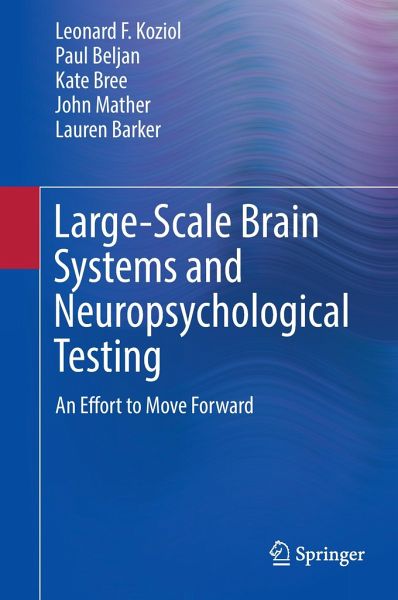
Large-Scale Brain Systems and Neuropsychological Testing
An Effort to Move Forward
Versandkostenfrei!
Versandfertig in 6-10 Tagen
57,99 €
inkl. MwSt.
Weitere Ausgaben:

PAYBACK Punkte
29 °P sammeln!
This leading-edge volume offers a new framework for neuropsychological testing rooted in the current evidence base on large-scale brain system interactions. Expert coverage brings traditional discrete areas of cognitive functioning (e.g., attention, memory) in line with highly nuanced relationships between cortical and subcortical processing. The new findings point to more accurate and targeted testing, as authors expand on the judicious addition of nonstandardized methods to core diagnostic tools and the underused capacity of neuropsychological testing to assess social behavior and personalit...
This leading-edge volume offers a new framework for neuropsychological testing rooted in the current evidence base on large-scale brain system interactions. Expert coverage brings traditional discrete areas of cognitive functioning (e.g., attention, memory) in line with highly nuanced relationships between cortical and subcortical processing. The new findings point to more accurate and targeted testing, as authors expand on the judicious addition of nonstandardized methods to core diagnostic tools and the underused capacity of neuropsychological testing to assess social behavior and personality. The book's emphasis on cognition in context gives practitioners better understanding of assessment and evaluation, leading to improved diagnosis, treatment, and outcomes for individuals as well as significant improvements in the field.
This innovative reference:
Reframes cognitive functioning in light of current data on brain interconnectivity. Critiques current methods of neuropsychological test interpretation. Reviews known, useful interpretive methodologies within a new context. Features instructive case examples emphasizing accurate historical and test data. Revisits the strengths and limitations of the bell curve construct. Examines the interpretive significance of pathognomonic signs. Details strategies for making neuropsychological evaluations more clinically relevant.
Large-Scale Brain Systems and Neuropsychological Testing combines current findings, clinical sense, and common sense to ground neuropsychologists, school psychologists, child psychologists, and clinical social workers in the effective assessment of real-world functioning.
This innovative reference:
Reframes cognitive functioning in light of current data on brain interconnectivity. Critiques current methods of neuropsychological test interpretation. Reviews known, useful interpretive methodologies within a new context. Features instructive case examples emphasizing accurate historical and test data. Revisits the strengths and limitations of the bell curve construct. Examines the interpretive significance of pathognomonic signs. Details strategies for making neuropsychological evaluations more clinically relevant.
Large-Scale Brain Systems and Neuropsychological Testing combines current findings, clinical sense, and common sense to ground neuropsychologists, school psychologists, child psychologists, and clinical social workers in the effective assessment of real-world functioning.



